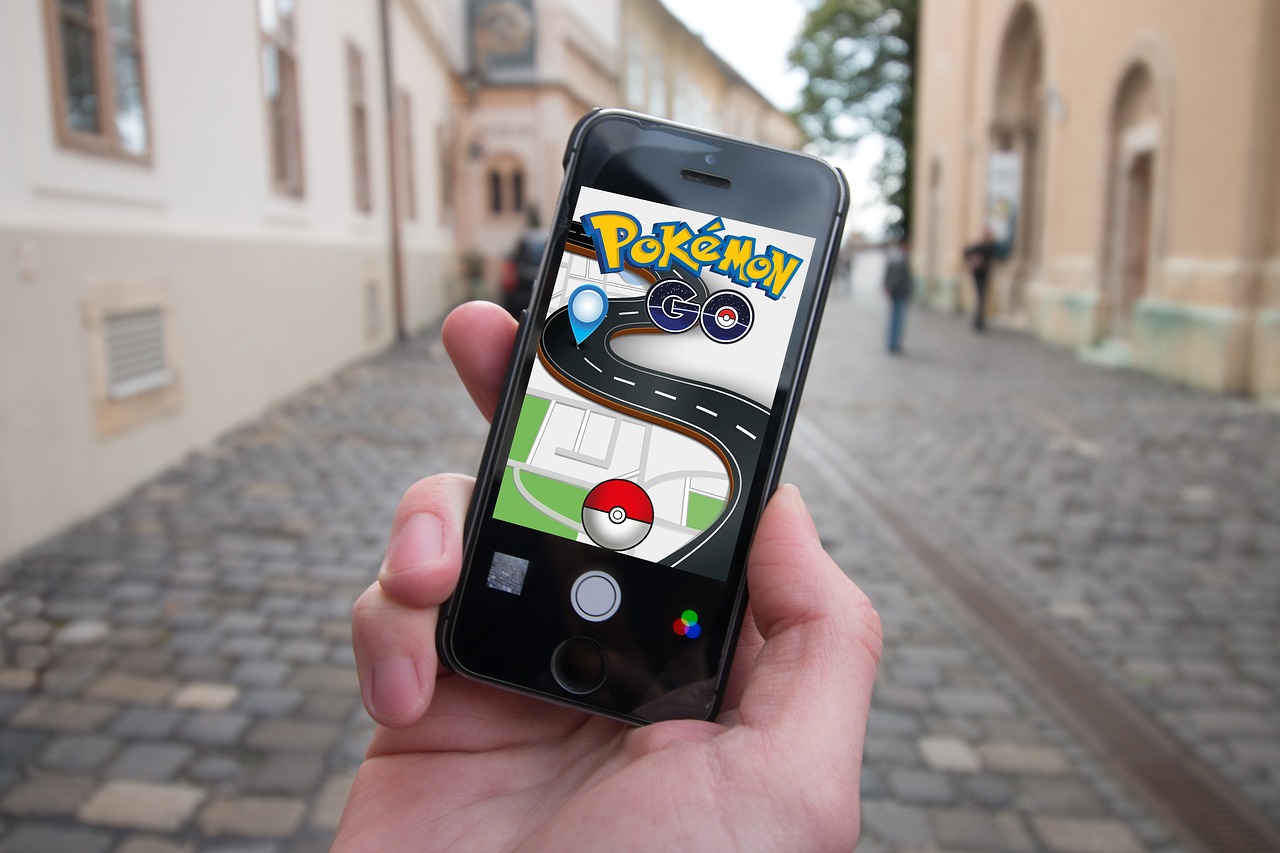How AI and Automation Are Changing Travel Booking Processes
Artificial Intelligence (AI) and automation have ushered in a new era in the travel industry, completely transforming the way people plan and book their trips. These innovative technologies have revolutionized the traditional travel booking processes, offering a plethora of benefits and conveniences to travelers worldwide.
One of the most significant impacts of AI and automation in travel booking is the introduction of personalized recommendations. By leveraging advanced algorithms, AI can analyze user data to provide tailored travel suggestions, ensuring that customers receive options that align perfectly with their preferences and interests. This not only enhances the booking experience but also boosts customer satisfaction by offering a more personalized service.
Furthermore, the integration of chatbots for customer service has streamlined the booking process significantly. These automated chat systems, powered by AI, can provide instant responses to customer inquiries, offering round-the-clock support and efficient communication. Travelers can now get the assistance they need promptly, making the booking process seamless and hassle-free.
Dynamic pricing strategies have also been revolutionized by automation tools, which adjust prices in real-time based on various factors such as demand and competitor pricing. This optimization of pricing not only benefits travel companies by maximizing revenue but also provides customers with competitive rates, making travel more affordable and accessible.
Virtual reality tours, driven by AI, have completely transformed the way travelers explore destinations before making bookings. These immersive experiences allow travelers to get a realistic preview of accommodations and attractions, empowering them to make more informed decisions and choose experiences that truly resonate with them.
Moreover, AI plays a crucial role in risk assessment and management, analyzing diverse data points to evaluate potential risks in travel plans. By providing insights on factors like weather conditions and political unrest, AI helps travelers make safer choices, ensuring peace of mind throughout their journeys.
Efficient itinerary planning has also been enhanced through automation, which suggests activities, transportation options, and accommodations based on user preferences and constraints. This streamlining of the planning process enables travelers to create hassle-free travel schedules, optimizing their overall experience.
Enhanced fraud detection is another key benefit of AI in travel booking processes. AI tools can detect suspicious activities and patterns in bookings, reducing the risk of fraud for both customers and travel companies. This ensures secure transactions and builds trust in the booking process.
Language translation services powered by AI have broken down language barriers in travel, facilitating seamless communication between travelers and service providers in different languages. This enhancement in communication enhances the overall booking experience, making travel more accessible and inclusive.
Furthermore, AI and automation support sustainability initiatives in travel by promoting eco-friendly practices and suggesting environmentally conscious options. By reducing the carbon footprint of travel booking processes and promoting sustainable accommodations, these technologies contribute to a more sustainable and responsible travel industry.

Personalized Recommendations
Exploring the impact of artificial intelligence and automation on the travel industry, specifically focusing on how these technologies are revolutionizing the way people book their trips and vacations.
AI algorithms analyze user data to offer tailored travel suggestions, enhancing the booking experience and increasing customer satisfaction by providing options that align with individual preferences.
Automated chat systems powered by AI provide instant responses to customer inquiries, offering support 24/7 and streamlining the booking process through efficient communication.
Automation tools adjust prices in real-time based on demand, competitor pricing, and other factors, optimizing revenue for travel companies and offering customers competitive rates.
AI-driven virtual reality experiences allow travelers to explore destinations before booking, giving them a realistic preview of accommodations and attractions to make more informed decisions.
AI analyzes various data points to assess potential risks in travel plans, such as weather conditions or political unrest, helping travelers make safer choices and providing peace of mind.
Automation streamlines the process of creating travel schedules, suggesting activities, transportation options, and accommodations based on user preferences and constraints for a hassle-free trip.
AI tools detect suspicious activities and patterns in bookings, reducing the risk of fraud for both customers and travel companies, ensuring secure transactions in the booking process.
AI-powered language translation tools facilitate communication between travelers and service providers in different languages, breaking down language barriers and enhancing the overall booking experience.
AI and automation support eco-friendly travel practices by suggesting environmentally conscious options, promoting sustainable accommodations, and reducing the carbon footprint of travel booking processes.
Stay tuned for answers to common queries about AI and automation in travel booking processes.

Chatbots for Customer Service
Chatbots for Customer Service have revolutionized the way travelers interact with companies during the booking process. These automated chat systems, powered by AI, offer instant responses to customer inquiries, providing support 24/7. By leveraging automation, travel companies can streamline communication with customers, ensuring a seamless booking experience.
Imagine being able to get immediate answers to your questions at any time of the day or night. Chatbots make this possible by utilizing AI algorithms to understand customer queries and provide relevant information promptly. Whether you need assistance with booking a flight, finding accommodation, or clarifying a policy, chatbots are there to help.
Moreover, chatbots can assist with a wide range of tasks, from suggesting travel destinations based on your preferences to resolving payment issues efficiently. By incorporating automation into customer service, travel companies can enhance the overall booking experience, making it more convenient and user-friendly.
Through the use of chatbots, travelers can receive personalized recommendations, access real-time updates on their bookings, and even receive notifications about potential discounts or promotions. The ability of chatbots to provide immediate assistance and relevant information contributes to a more efficient and enjoyable booking process for customers.

Dynamic Pricing Strategies
Exploring the impact of artificial intelligence and automation on the travel industry, specifically focusing on how these technologies are revolutionizing the way people book their trips and vacations.
Dynamic pricing strategies are a game-changer in the travel industry. By utilizing automation tools, travel companies can adjust prices in real-time based on various factors such as demand, competitor pricing, and even the time of booking. This dynamic approach optimizes revenue for businesses while offering customers competitive rates that reflect the current market conditions. It's like a digital dance where prices move in harmony with the ever-changing rhythm of the travel market, ensuring both profit for companies and savings for travelers.

Virtual Reality Tours
Virtual Reality (VR) tours powered by artificial intelligence have revolutionized the way travelers explore destinations before making their bookings. Imagine being able to step into a virtual world and walk through the streets of Paris or relax on a beach in the Maldives without leaving your home. These immersive experiences provide a realistic preview of accommodations, attractions, and local culture, allowing travelers to make more informed decisions about their trips.
Through AI-driven VR technology, travelers can get a 360-degree view of hotel rooms, check out amenities, and even virtually visit popular tourist spots. This not only enhances the booking experience but also helps in managing expectations, ensuring that the chosen destination aligns with the traveler's preferences and interests. It's like taking a test drive before committing to the journey, giving a taste of what's to come and building excitement for the actual trip.
Moreover, VR tours can be particularly beneficial for travelers with specific needs or preferences. For example, someone with mobility issues can virtually explore the accessibility of a hotel or tourist site, ensuring a comfortable experience upon arrival. Families can take virtual tours of kid-friendly attractions or accommodations to plan a vacation that caters to everyone's interests.
By integrating AI and VR into the travel booking process, companies can offer a more engaging and personalized experience to their customers. These technologies not only make trip planning more convenient but also add a touch of excitement and anticipation to the journey ahead.

Risk Assessment and Management
When it comes to travel, unforeseen circumstances can quickly turn a dream vacation into a nightmare. This is where AI plays a crucial role in risk assessment and management, ensuring travelers can make informed decisions and stay safe throughout their journeys. By analyzing a plethora of data points, including weather forecasts, political stability, and health advisories, AI can identify potential risks and provide timely warnings to travelers.
Imagine you're planning a trip to a tropical destination. AI algorithms can alert you to upcoming hurricanes or monsoons, prompting you to reschedule your travel dates or choose a safer location. This proactive approach not only safeguards your well-being but also saves you from the disappointment of a ruined vacation.
Moreover, AI can assist in real-time risk management during your trip. If unexpected events occur, such as flight cancellations or natural disasters, AI-powered systems can quickly assess the situation and recommend alternative routes or accommodations. This level of responsiveness ensures that you can navigate challenges effectively and minimize disruptions to your travel plans.
By harnessing the power of AI for risk assessment and management, travelers can embark on their adventures with confidence, knowing that they have a virtual safety net guiding them every step of the way. Whether it's avoiding travel hotspots during political unrest or steering clear of areas prone to natural disasters, AI empowers travelers to make informed choices and prioritize their safety above all else.

Efficient Itinerary Planning
Efficient Itinerary Planning in the travel industry has been revolutionized by the integration of AI and automation. These technologies work together to streamline the process of creating travel schedules, offering travelers a hassle-free experience from start to finish. By analyzing user preferences and constraints, automation suggests activities, transportation options, and accommodations that align with individual needs, saving time and effort in itinerary planning.
Imagine having a personal travel assistant that understands your preferences and constraints, effortlessly crafting a customized itinerary that suits your needs. AI algorithms work behind the scenes to ensure that every aspect of your trip is tailored to your liking, from the activities you enjoy to the type of accommodation you prefer. This level of personalization enhances the overall travel experience, making each trip memorable and stress-free.
Moreover, automation in itinerary planning takes into account various factors such as travel dates, budget constraints, and preferred activities to offer a curated selection of options that meet your requirements. By leveraging AI technology, travelers can optimize their time and resources, maximizing the enjoyment of their trip without the hassle of extensive planning.
Efficient Itinerary Planning powered by AI and automation not only saves time but also enhances the quality of travel experiences. By suggesting activities and attractions based on individual preferences, these technologies ensure that travelers make the most of their time at each destination, creating unforgettable memories along the way.

Enhanced Fraud Detection
Enhanced Fraud Detection in the travel industry has become a crucial aspect of ensuring secure transactions for both customers and companies. With the advancement of AI technology, travel companies can now utilize sophisticated tools to detect and prevent fraudulent activities effectively. These AI tools work by analyzing booking patterns, identifying anomalies, and flagging suspicious transactions in real-time.
By implementing AI-powered fraud detection systems, travel companies can significantly reduce the risks associated with fraudulent bookings. Customers can book their trips with confidence, knowing that their transactions are being closely monitored for any signs of fraudulent behavior. This not only protects the customers but also safeguards the reputation and financial well-being of the travel companies.
One of the key benefits of enhanced fraud detection through AI is the ability to stay ahead of evolving fraud tactics. These systems can adapt and learn from new patterns of fraudulent activities, constantly improving their accuracy and efficiency in detecting potential threats. By staying proactive in fraud prevention, travel companies can maintain a high level of security in the booking process.
Moreover, AI-driven fraud detection not only identifies individual instances of fraud but also helps in uncovering larger fraud schemes and networks. By analyzing data on a broader scale, these systems can detect interconnected fraudulent activities that may go unnoticed through manual monitoring. This comprehensive approach strengthens the overall security measures in place.
In conclusion, enhanced fraud detection powered by AI is a game-changer in the travel industry, providing a robust defense against fraudulent activities and ensuring a secure booking process for both customers and companies. By harnessing the capabilities of artificial intelligence, travel businesses can stay one step ahead in the ongoing battle against fraud, offering peace of mind to travelers and maintaining trust in the industry.

Language Translation Services
Language Translation Services in the travel industry have been significantly enhanced by the integration of AI-powered tools. These innovative technologies break down language barriers between travelers and service providers, ensuring seamless communication regardless of linguistic differences. By leveraging advanced translation algorithms, travelers can now interact with local businesses, navigate foreign destinations, and engage with cultural experiences more effectively. This not only enriches the overall booking process but also fosters a deeper connection between travelers and the places they visit.

Sustainability Initiatives in Travel
Travel industry is not only about exploring new destinations and creating memorable experiences; it also plays a significant role in shaping our environment. With the rise of AI and automation, sustainability initiatives in travel have gained momentum, aiming to reduce the carbon footprint and promote eco-friendly practices.
One key aspect of sustainability initiatives is the promotion of environmentally conscious options to travelers. AI algorithms can suggest accommodations, transportation methods, and activities that align with sustainable practices, encouraging travelers to make eco-friendly choices without compromising on their experience.
Moreover, automation in travel booking processes can highlight sustainable accommodations that prioritize energy efficiency, waste reduction, and community engagement. By showcasing these options to travelers, AI and automation contribute to raising awareness about sustainable travel practices and supporting businesses that prioritize environmental responsibility.
Another crucial aspect of sustainability initiatives in travel is the reduction of single-use plastics and waste generation. Automation tools can recommend travel products and services that minimize environmental impact, such as reusable water bottles, eco-friendly toiletries, and sustainable souvenirs, helping travelers make conscious decisions during their trips.
Furthermore, AI can analyze data on travel patterns and preferences to identify opportunities for reducing carbon emissions in transportation. By suggesting alternative routes, modes of transport, or travel times that are more energy-efficient, AI contributes to mitigating the environmental impact of travel and promoting sustainable transportation choices.
In addition to individual traveler actions, AI and automation also play a role in supporting sustainable tourism destinations. By promoting conservation efforts, responsible wildlife viewing, and community-based tourism experiences, these technologies help travelers engage with local communities and contribute to the preservation of natural and cultural heritage.
Overall, sustainability initiatives in travel driven by AI and automation are not only about reducing environmental harm but also about fostering a deeper connection between travelers and the destinations they visit. By integrating sustainability into the travel booking process, these technologies empower travelers to make informed choices that benefit the environment, local communities, and future generations.
Frequently Asked Questions
- How can AI and automation improve the travel booking experience?
AI and automation enhance the travel booking process by providing personalized recommendations, efficient itinerary planning, and enhanced fraud detection. These technologies streamline communication, offer tailored suggestions, and ensure secure transactions, ultimately making the booking experience more convenient and secure for travelers.
- What role do chatbots play in travel booking?
Chatbots powered by AI offer 24/7 customer support, providing instant responses to inquiries and assisting travelers throughout the booking process. By leveraging automation, chatbots streamline communication, resolve queries efficiently, and contribute to a seamless booking experience for customers.
- How do AI-driven virtual reality tours benefit travelers?
AI-driven virtual reality tours allow travelers to explore destinations before booking, offering a realistic preview of accommodations and attractions. This immersive experience enables travelers to make more informed decisions, visualize their trips, and enhance their overall travel planning process.



















